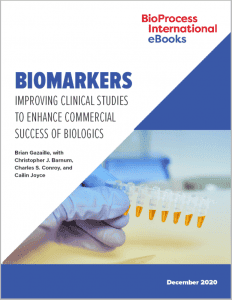Voices of Biotech
Podcast: MilliporeSigma says education vital to creating unbreakable chain for sustainability
MilliporeSigma discusses the importance of people, education, and the benefits of embracing discomfort to bolster sustainability efforts.
 The biopharmaceutical industry continues to invest heavily in technologies for identification of predictive biomarkers. Drug developers want not only to find quantitative evidence that their therapies will work as designed, but also to anticipate which patient populations will respond positively to those regimens. Doing that could streamline clinical trials, accelerate approvals, and ultimately improve patient outcomes. Advances in next-generation sequencing and increases in computational capability now are facilitating biomarker inquiries, especially in the realm of immunooncology. However, predictive biomarkers remain elusive for many cancers and autoimmune disorders.
The biopharmaceutical industry continues to invest heavily in technologies for identification of predictive biomarkers. Drug developers want not only to find quantitative evidence that their therapies will work as designed, but also to anticipate which patient populations will respond positively to those regimens. Doing that could streamline clinical trials, accelerate approvals, and ultimately improve patient outcomes. Advances in next-generation sequencing and increases in computational capability now are facilitating biomarker inquiries, especially in the realm of immunooncology. However, predictive biomarkers remain elusive for many cancers and autoimmune disorders.
In this eBook, BPI’s associate editor shares three interviews with industry experts about what factors still impede identification of predictive biomarkers and what methods and materials are needed to negotiate such hurdles. These conversations shed light on the need to investigate biomarker “signatures” rather than single genes or proteins; the role that artificial intelligence (AI) will play in drug discovery and development, especially as the biopharmaceutical industry gathers increasingly large stores of genomic and proteomic data; the need for fields outside of oncology, including neurology, to adopt biomarkers-driven approaches to drug development and clinical-trial design; and the advent of radioisotope-based theragnostic products that are designed to treat and monitor the progression of cancer simultaneously.
Fill out the form below to read the complete eBook now.
You May Also Like